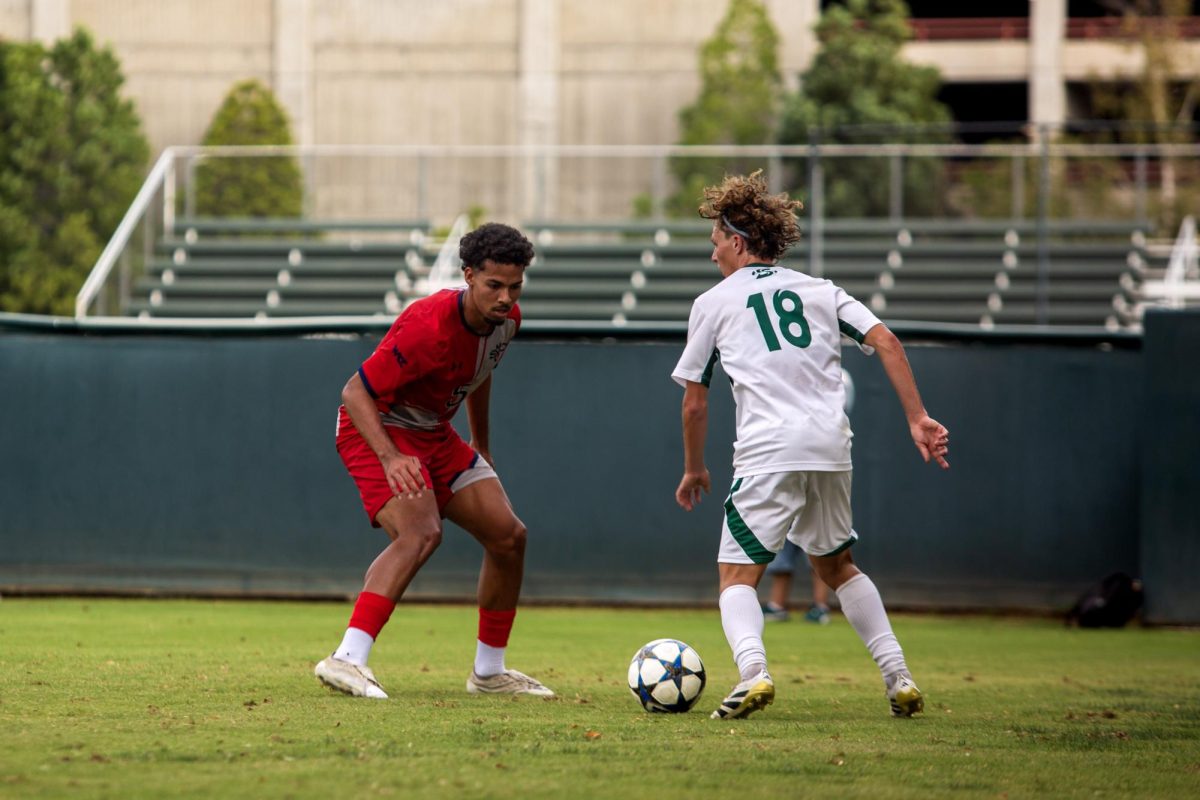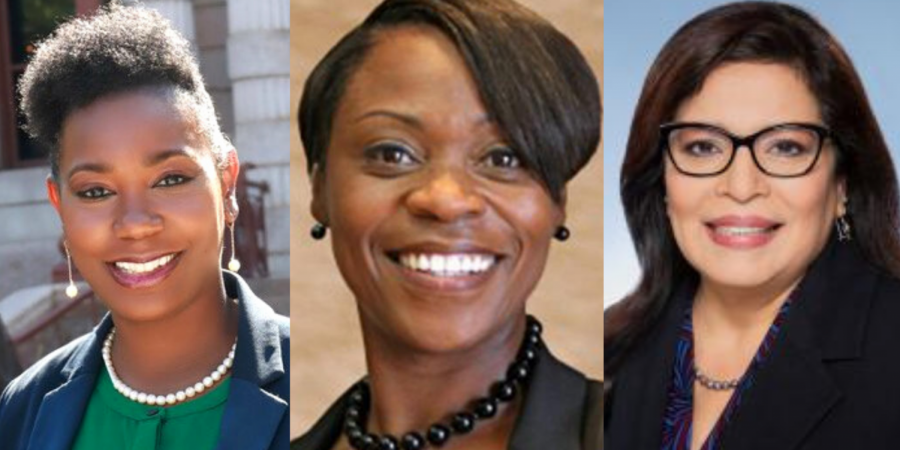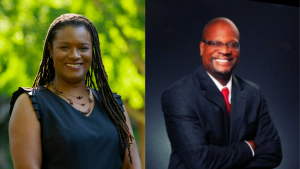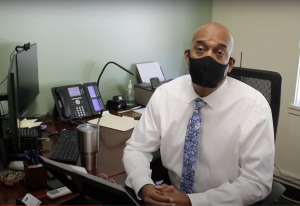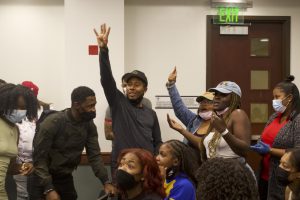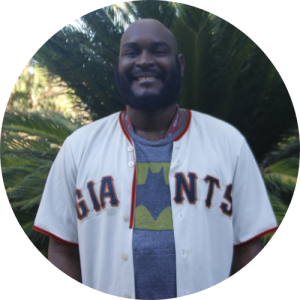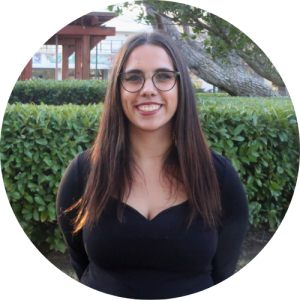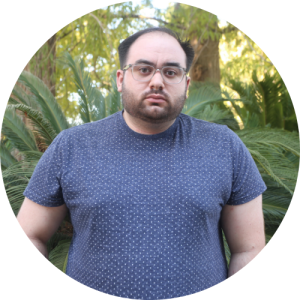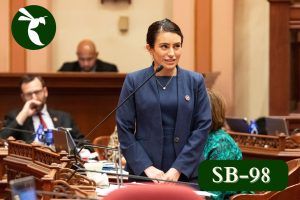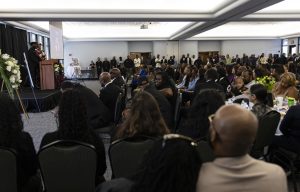Candidates for Sac State’s vice president of inclusive excellence share goals in open forum
Next VP will focus on diversity, equity and inclusion at university
Stephany Rose Spaulding, Mia Settles-Tidwell and Josephine Moreno were the three candidates for Sacramento State’s next vice president of inclusive excellence. Each was interviewed and shared their ideas on Sept. 21, 22 and 23, 2021 respectively. (Photo courtesy of University of Colorado, Colorado Springs, UC Berkeley and UC Davis Graduate Studies). (Canva graphic by Emma Hall).
September 23, 2021
Sacramento State held town halls interviewing three candidates to work as vice president of inclusive excellence, following former vice president Diana Tate Vermeire’s departure in April. This role will focus on diversity, equity and inclusion on campus and will work directly with the university’s anti-racism and inclusion plan.
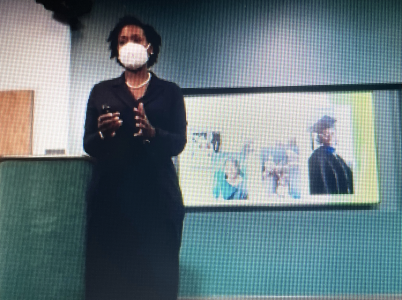
Stephany Rose Spaulding
Stephany Rose Spaulding is the current interim vice chancellor for equity, diversity and inclusion at the University of Colorado, Colorado Springs since November of last year.
Previously, Spaulding was a tenured associate professor of women’s and ethnic studies at the University of Colorado, Colorado Springs for five years but is currently on leave while serving the university in an administrative capacity.
Spaulding spoke to the campus on Tuesday and said she did cartwheels when reading the job description for vice president of inclusive excellence and the anti-racism and inclusion plan because Sac State is already using anti-racist language. At other colleges and universities, she said they don’t have proportional representaton or anti-racist conversations.
“When I’m asked, why Sacramento State? It is because you all have begun to intentionally have these conversations,” Spaulding said. “The fact that you all are leading with anti-racism excites me as one coming into this role, because it tells me the kinds of conversations that you all have already begun to have.”
Spaulding said knowing there are invested individuals and divisions already wanting to work on how to improve Sac State is what drives her interest.
“If I am offered this opportunity, there is no cape on my back, and I am not a superhero,” she said. “There is no way I can do this work alone.”
Spaulding said that Sac State is building a place of practice and action. According to her, some people and organizations drag their feet and never put into the institution what they have theorized about and what they have discussed for years.
“Working with organizations to think through and change their recruitment patterns is what has helped her move into the necessary work,” Spaulding said.
“If we do what we’ve always done, then we’ll get the results we’ve always got,” she said. “If we keep doing the same practices around who we invite to the role, who we invite to the table, then we are going to get the same kind of people. What does that look like?”
One of the forum’s virtual attendees asked Spaulding to explain how her framework includes intersectional identities, particularly for people of color with disabilities.
Spaulding said that intersectionality is at the core of everything she has done as an academic and activist. However in discussing disability, it’s not specifically on people of color with disabilities, just disabilities in general, she said.
“When we add layers of racism to what accessibility means, at times unemployment, in terms of studying, there’s an added barrier to who has access and who does not,” she said. “And so, I lead with intersectionality, in the work that I do. Even as I teach, I tell my students, I might be able to walk in here as a woman this morning, but I could not take off my skin. I’m still Black.”
The topic of Spaulding’s vision to strategically shift institutional behavior to embrace an abolitionist lens was also asked. Spaulding says she believes developing relationships with individuals invested in abolition work and bringing them on board is essential.
“A lot of it is going to be educating workshops and facilitating conversations,” she said. “The teaching of what these ideas mean, examining the limitations of our language, all has to happen.”
Spaulding said part of knowing what is needed to move forward with equity initiatives is the willingness to learn.
“Our directors have to value it, our deans have to value it, the entire cabinet has to value it,” she said. “This is in order for it to be shared across the campus and to move us to really doing the hard work of dismantling systems.”
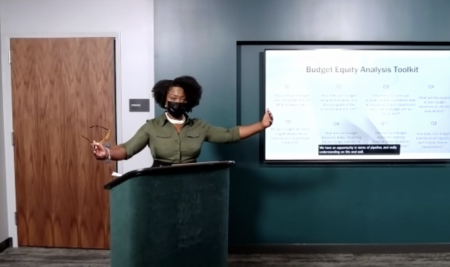
Mia Settles-Tidwell
Coming from a background in teaching K-12 education, Mia Settles-Tidwell currently sits as the chief of staff of equity and inclusion at the UC, Berkeley. On Wednesday, she made her case and shared her ideas for if she is selected to serve as the vice president of inclusive excellence at Sac State.
According to her, the most pressing trends in higher education are the impacts of COVID-19, centering the experience of underrepresented and marginalized communities, faculty and workforce diversity, and limited budget allocations to DEI efforts.
Regarding how much the California State University system spends on DEI initiatives, Settles-Tidwell said it was less than 1% of the budget with the most, and 62% spent on faculty recruitment.
On faculty recruitment, she said those numbers shouldn’t change, describing it as the “heartbeat” of what universities do. However, also according to her, DEI should be infused into faculty recruitment. This is through budgeting with an equity lens and increasing community partnerships.
The lack of diversity of faculty needs to change, Settles-Tidwell said, so students can see themselves represented in leadership roles. Likewise, she said faculty of color take on “additional labor” as community mentors to support students, which is rarely celebrated.
“That’s an equity issue, that’s going to make someone want to leave a job,” she said. “A part of this work is not just about recruiting and getting people to come in but to retain and grow them.”
At Sac State, Latino and Hispanic students make up the majority of the student population, with over 11,000 students, according to the university’s enrollment dashboard. Yet, there are only 137 Latino and Hispanic faculty at the university that make up 20% of overall faculty, according to Sac State’s demographics.
“We all know the numbers of staff and faculty don’t often look like our student body, and that’s a well known fact,” Settles-Tidwell said. “But what we need to drill down on is the equity issues that creates that outcome.”
To diversify faculty and staff, Settles-Tidwell mentioned creating work groups and equity advisors to be involved in hiring faculty and other processes.
“It’s not just about getting folks in who look a different way,” she said. “It’s about what outreach are we doing with communities that we have never done outreach with to make sure our pool is diverse.”
In what was described as a “mass exodus” of administrators of color leaving Sac State, an anonymous attendee asked Settles-Tidwell what her plans are to address “failures of retaining colleagues of color” at the university.
Last spring, several administrators and staff members of color left or resigned from Sac State including Vermeire, director of inclusive excellence John Johnson and former police chief Mark Iwasa.
Recognition of colleagues of color and their achievements is key, she said. Additionally, Settles-Tidwell explained that university administrators need “professional learning” in recognizing and retaining university staffers of color. In her past Settles-Tidwell explained how she created memorandums of understanding with departments like human resources and hired a diversity officer within human resources.
One of the projects she mentioned was the “Black Leaders Collective,” where Black campus leaders and administrators joined to discuss institutionalizing change. This group was formed after the murder of George Floyd, a 46-year-old Black man who was shot and killed by Minneapolis police.
“Building that Black coalition and network actually helped not only retain but grow [Black faculty],” she said.
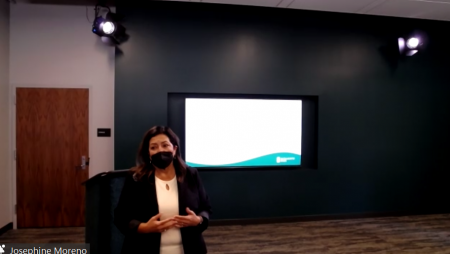
Josephine Moreno
Josephine Moreno spoke at a town hall with the Sac State community Thursday to present her aims if she is to be chosen as the VP of inclusive excellence.
Moreno has 20 years of experience as a graduate diversity director, first at UC Berkeley from 2001 to 2013 and then at the University of California, Davis from 2013 to now. Moreno received a graduate certificate from UC Berkeley in college admissions and career planning in 2004 and holds a doctorate in textiles and clothing from Iowa State University, Ames, in 1995.
Moreno began the town hall by speaking to the “common experience” of those in attendance.
“We’ve all experienced the pandemic as a shock, as a chasm between one side of our lives to another,” Moreno said. “Faculty couldn’t get to their offices; how were we going to work? Students were wondering ‘How are we going to learn?’”
Moreno spoke about how the pandemic, as well as a number of tumultuous and significant social issues such as peaceful and violent protests over the past year, have highlighted the need to be empathetic and understanding towards both students and faculty facing the stresses of the times, what Moreno called a “pedagogy of healing.”
Moreno went on to say that this must lead to a consideration of what a person might have to deal with when they leave the classroom, from lost family members due to the coronavirus to economic hardship or even homelessness.
“This pandemic has made us more aware of our need to care for students, their mental health, their physical wellbeing,” Moreno said. “How do we support students who come from very difficult circumstances or are historically underrepresented?”
Moreno stated her belief was through collaboration. Repeatedly during her speech, she emphasized that while her role would be one of leadership, her focus would be on working with others to achieve goals.
“I would provide that leadership but not alone,” Moreno said. “You can’t do this work alone, but in a partnership with the whole campus. I would bring those skills to the VP position, but I really emphasize that it would be a community effort.”
Other trends on campus that Moreno believed required addressing were the stresses and workload piled onto staff and faculty. She pointed out how many issues facing students were also facing staff and faculty in regards to “these very anxious times” and stated that the university had to work harder to find creative solutions to lighten the load placed on faculty.
Moreno also spoke about how the load was even heavier on BIPOC and LGBTQ+ staff due to “cultural taxation.” Moreno noted that many students would reach out to these members of the faculty in particular for help or guidance because they “gravitate towards the faculty and staff more like them.” Moreno saw this as both a clear need to achieve greater diversity in the faculty, as well as another place to emphasize empathy and support.
“They [BIPOC] need the support of their colleagues; their white colleagues, their male colleagues, their straight colleagues,” Moreno said. “We have to convey how critical that is.”
When speaking about the Sac State’s current anti-racism plan, Moreno said it would be important to emphasize not only the aims of the plan, but to communicate why those goals were so vitally important. She praised the plan and the work that it took to bring together.
“This anti-racism plan has so much potential, these recommendations that people have put together with their heart and soul to make the campus more inclusive,” Moreno said.
She identified that one of the roadblocks for enacting the anti-racism plan would be to communicate the aims to faculty and staff and “involve busy people in a complex problem.” She believed the issue would simply stem from the “heavy load” that faculty already had to contend with, not to mention the stresses of the world at large.
Moreno said that change also had to be brought about expediently because that was what was expected of the university.
“Our students want to see results,” Moreno said. “They’re frustrated that the university takes so long to address issues, to learn, to progress.”
























































